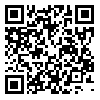Sat, Dec 13, 2025
[Archive]
Volume 8, Issue 2 (8-1994)
Med J Islam Repub Iran 1994 |
Back to browse issues page
Download citation:
BibTeX | RIS | EndNote | Medlars | ProCite | Reference Manager | RefWorks
Send citation to:



BibTeX | RIS | EndNote | Medlars | ProCite | Reference Manager | RefWorks
Send citation to:
AYATOLLAHI S M T. ETHICAL ISSUES IN MEDICAL STATISTICS. Med J Islam Repub Iran 1994; 8 (2) :121-125
URL: http://mjiri.iums.ac.ir/article-1-1390-en.html
URL: http://mjiri.iums.ac.ir/article-1-1390-en.html
From tile Department of Biostatistics, Shiraz University of Medical Sciences, Shiraz
Abstract: (4535 Views)
Medical statistics (biostatistics), as a vital essential part of modem life, does
raise some fundamental ethical issues. Surprisingly, this aspect seems to have been
totally ignored by books on medical ethics. This paper discusses how the statistical
aspects affect the ethics. The relation between biostatistics and medical research is
explored. All stages of a medical research exercise are vulnerable to statistical
mismanagement which might lead to misuse of patients by exposing them to
unjustified risk and inconvenience the misuse of resources including the researchers'
time, which could be better employed on more valuable activities and the consequences
of publishing misleading results, which may include carrying out unnecessary
further work. These are specific and highly undesirable outcomes. Failure to guard
against these is surely as unethical as using experimental methods that offend against
moral principles, such as failing to obtain full informed consent from subjects.
Raising statistical standards of medical researches and publications serves as a
safeguard to observe the element of ethics. This can be achieved by widespread
teaching of medical statistics at all levels, involvement of biostatisticians as active
participants of any medical researches and ethical committees. Ethical issues in
medical statistics require wider and more open debate. Those involved in medical
research need to involve the whole medical profession. lndeed, moral philosophers,
theologians, and other professional groups have an important contribution to make.
Type of Study: Original Research: Basic Science in Medicine |
Subject:
General
| Rights and permissions | |
 |
This work is licensed under a Creative Commons Attribution-NonCommercial 4.0 International License. |





